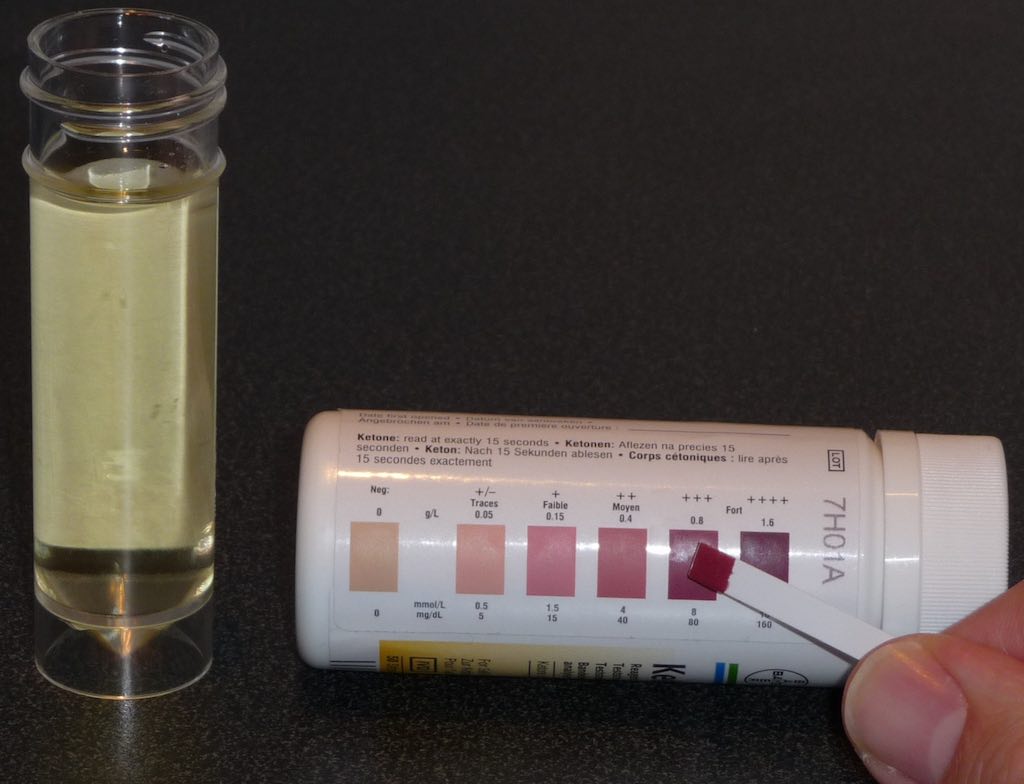Ketone is a chemical produced when there is a shortage of insulin in the blood and the body breaks down body fat for energy.
Ketones in the urine is a sign that your body is using fat for energy instead of using glucose because not enough insulin is available to use glucose for energy.
Ketones in the urine is more common in type 1 diabetes.
How Do I Test?
Ketone tests are available at your pharmacy, so talk to your doctor about them as well as record-keeping methods he or she recommends. Most include either packages of strips or foil-wrapped strips (which store longer).
Urine tests are simple, but to get good results you have to follow directions carefully.
Check to be sure that the strip is not outdated. Read the insert that comes with your strips. Go over the correct way to check with your doctor or nurse.
Here’s how most urine tests go:
- Get a sample of your urine in a clean container.
- Place the strip in the sample (you can also pass the strip through the urine stream).
- Gently shake excess urine off the strip.
- Wait for the strip pad to change color. The directions will tell you how long to wait.
- Compare the strip pad to the color chart on the strip bottle. This gives you a range of the amount of ketones in your urine.
- Record your results.
When Should I Test?
Ask your doctor or nurse when to check for ketones. You may be advised to check for ketones under the following conditions:
- Your blood glucose is more than 300 mg/dl
- You feel nauseated, are vomiting, or have abdominal pain
- You are sick (for example, with a cold or flu)
- You feel tired all the time
- You are thirsty or have a very dry mouth
- Your skin is flushed
- You have a hard time breathing Your breath smells “fruity”
- You feel confused or “in a fog”
- These can be signs of high ketone levels that need your doctor’s help.
What Do My Results Mean?
Small or trace amounts of ketones may mean that ketone buildup is starting. You should test again in a few hours.
Moderate or large amounts are a danger sign. They upset the chemical balance of your blood and can poison the body. Never exercise when your urine checks show moderate or large amounts of ketones and your blood glucose is high. These are signs that your diabetes is out of control. Talk to your doctor at once if your urine results show moderate or large amounts of ketones.
Keeping track of your results and related events is important. Your log gives you the data you and your doctor and diabetes educator need to adjust your diabetes care plan.

